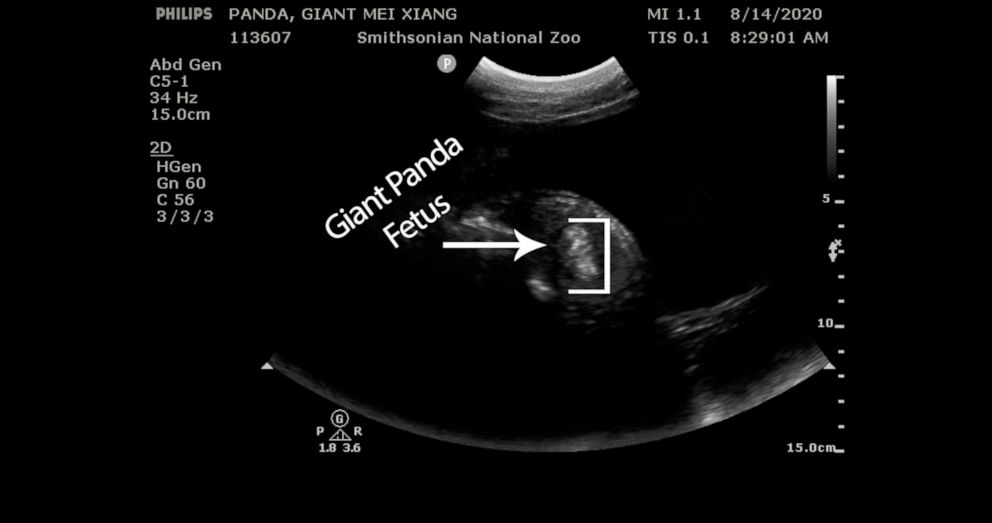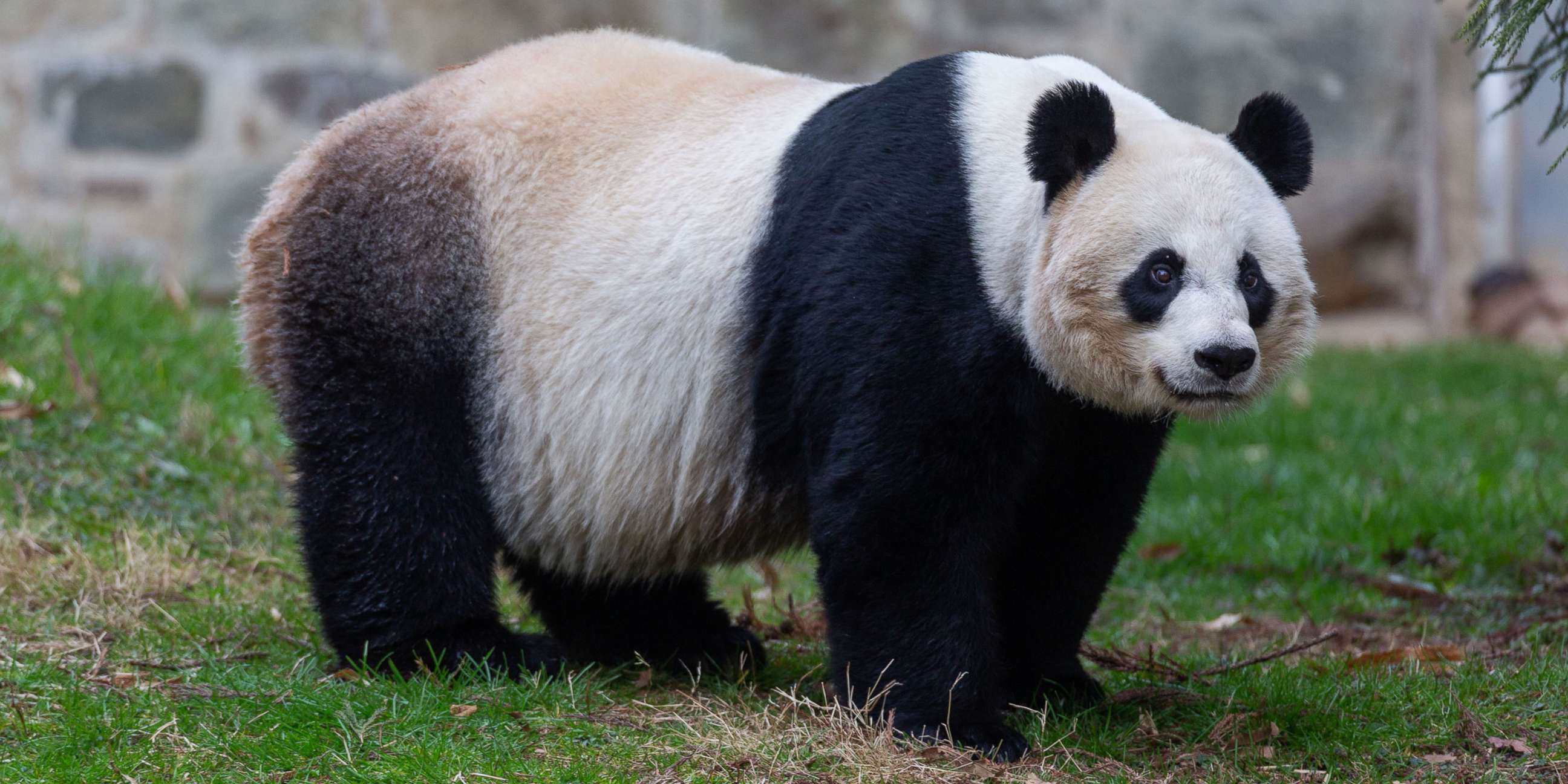National Zoo says panda Mei Xiang appears to be pregnant, could give birth soon
The zoo said there could be panda cub, or cubs, within a few days.
Keepers at the Smithsonian's National Zoo said Friday they were thrilled to detect what looks like a fetus during an ultrasound earlier in the day on giant panda Mei Xiang.
"Theres no denying that a giant panda is a charismatic animal, this is a huge success story," zoo spokesperson Pamela Baker-Masson told ABC News. "We have million's of people watching our panda cam program every year around the world."
Only three zoos in the U.S. have giant pandas, making any birth fascinating, she said.
“We are optimistic that very shortly she may give birth to a healthy cub or cubs. We’re fortunate that Mei Xiang participated in the ultrasound allowing us to get sharp images and video," Don Neiffer, the chief veterinarian who conducted the ultrasound, said in a news release.
While veterinarians said it was too early to determine whether the developing fetus might be resorbed, they said if the fetal tissue continues to develop, Mei Xiang could deliver a panda cub -- or maybe two -- within a few days.
They were hopeful, they said, because they saw strong blood flow and a skeletal structure in Mei's uterus.

Mei Xiang was artificially inseminated on March 22 with frozen semen collected from male panda Tian Tian and, in late July, she exhibited behaviors consistent with pregnancy.
Currently, she is sleeping more and nest building.
The zoo cautioned there is a "substantial possibility that Mei Xiang could resorb or miscarry" and, if so, her hormones and behavior will return to normal.
If Mei, at age 22 gives birth, she would be the oldest giant panda to do so, Masson told ABC News. The zoo has not had a giant panda cub since Bei Bei departed last year.
Despite Mei Xiang having had other false pregnancies, common among giant pandas, Mei has given birth to three surviving cubs: Tai Shan, Bao Bao, and Bei Bei -- all now back in China.
Giant pandas are classified as a "vulnerable" species by the International Union for Conservation of Nature and are native only to China, but thanks to an agreement between the National Zoo and the China Wildlife Conservation Association, cubs are lent to the United States until they reach 4 years old, at which point they must be sent back.

The panda house at the David M. Rubenstein Family Giant Panda Habitat is currently closed to the public in order to provide quiet for Mei Xiang.
But the panda team is closely monitoring her behavior on "panda cams" and said they will continue to provide updates on Facebook, Twitter, and Instagram using the hashtag #PandaStory.



